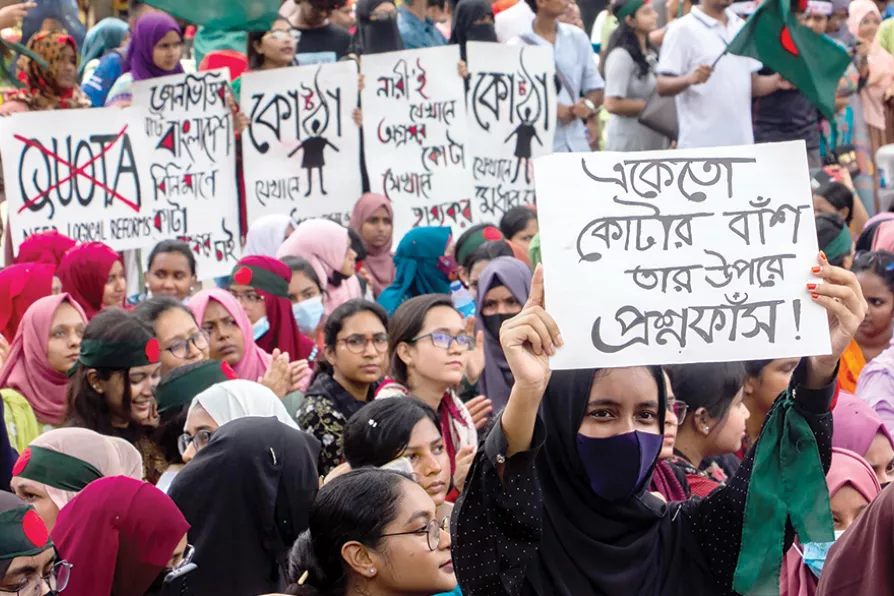This weekend, the NEU holds a special conference to debate changing its approach to organising teaching assistants, which a 2017 TUC agreement forbids. General secretary DANIEL KEBEDE outlines the choices before delegates
What forces are contending to shape Bangladesh's next steps?
MOSHFIQUR NOOR reviews the different factions and their views on where the country should go after overthrowing Sheikh Hasina's regime

 END LEGALISED NEPOTISM: Students launched the ‘Bangla Blockade’ demanding the scrapping of the discriminatory quotas system in public service on July 11 2024
[Rayhan9d/CC]
END LEGALISED NEPOTISM: Students launched the ‘Bangla Blockade’ demanding the scrapping of the discriminatory quotas system in public service on July 11 2024
[Rayhan9d/CC]
THE political situation nearly a month after the uprising in Bangladesh has generated a ferment of ideas about what to do next from a diverse range of social forces.
It has also led to demands being made on the interim government by all and sundry. All this is to be expected and reflects what has happened in other parts of the world where people’s upsurges have taken place. Let’s review the forces at work.
First, there’s an influential body of people who argue the problem of democracy in Bangladesh stems from an original sin in the constitution. The enactment of the constitution in 1972, written in English and then translated into Bengali, was ratified by a parliament whose members were elected in Pakistan.
Similar stories














